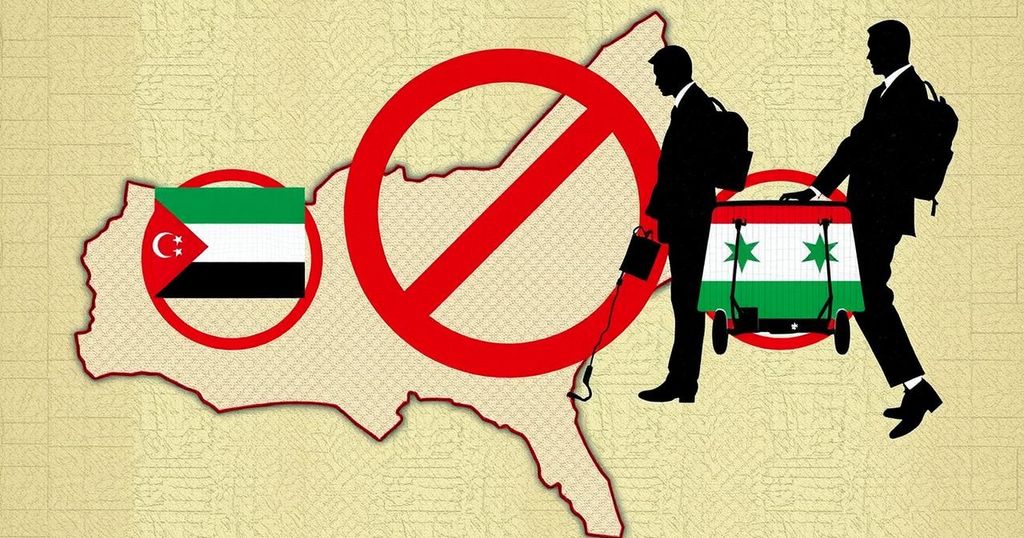Egypt’s new travel restrictions on Palestinians and Syrians deepen existing hardships, cutting families off and imposing bureaucratic barriers. Individuals like Manal and Mohammed share their plight of fleeing conflict only to face exclusion in their host country, reflecting broader issues of migration management amid regional instability and political unrest.
Egypt’s recent travel restrictions on Palestinians and Syrians significantly exacerbate the challenges faced by these communities. Manal, a Palestinian mother residing in Egypt, recounts her desperate journey from Gaza, only to learn that her attempt to visit relatives in Libya would cut her off from her immediate family in Cairo indefinitely. Like many others, she paid exorbitant bribes to escape war-torn Gaza, hoping to find safety in Egypt, yet her hardships have only intensified.
Manal’s situation mirrors that of Mohammed, another Palestinian in Egypt, who is too deterred by the new travel policies to seek employment opportunities abroad. In his words, the prolonged reality of living under siege has robbed them of the simplest human rights, perpetuating a cycle of fear and uncertainty that began with the conflicts in Gaza.
The Egyptian authorities have expanded travel bans to encompass all Palestinians present in Libya, Iraq, Yemen, Syria, and Sudan, requiring prior security approval for entry, often at a price. This creates confusion for those like Mohammed, who remain apprehensive about traveling for work, fearing that they may be barred from returning to their families.
Equally concerning are the new restrictions affecting Syrians, estimated at 1.5 million in Egypt. The Egyptian Civil Aviation Authority has issued bans preventing Syrians from entering Egypt without prior authorization. This development follows the recent political turmoil in Syria, where the fall of the Assad regime has led to stricter entry protocols.
Stories like that of Mohammed, a Syrian with a family in Egypt, illustrate the human toll of these policies. He finds himself trapped in Syria while his family resides in Egypt, a situation that seems insurmountable due to bureaucratic hurdles.
These developments signal not only heightened restrictions but underline a troubling trend of exclusion for troubled populations already facing dire circumstances. The fear of potential deportation looms large, especially for Palestinians and Syrians, who have already endured immense suffering due to conflict and instability.
The recent Egyptian travel restrictions on Palestinians and Syrians arise from ongoing geopolitical tensions and internal policies aimed at managing refugee flows. Many Palestinians fleeing conflict in Gaza have sought refuge in Egypt and face challenges due to lack of residency and employment opportunities. The Egyptian government has implemented new measures aimed at controlling the influx of refugees, particularly from countries experiencing civil unrest, indirectly impacting family unity and security for these displaced communities.
Egypt’s escalating travel restrictions on both Palestinians and Syrians reflect the country’s ongoing efforts to regulate migration amidst regional instability. Such policies are contributing to further isolation and hardship for these groups, who already endure significant struggles. The consequences of these measures are profound, as they threaten family connections and hinder the pursuit of basic rights and opportunities for a stable life.
Original Source: www.newarab.com






